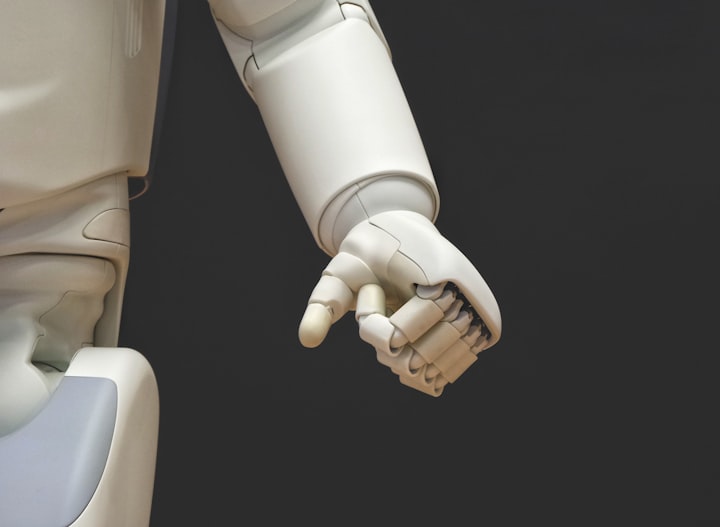The Ethical Terrain of AI Integration: Strategies for Managers
Balancing Innovation, Workforce Resilience, and Societal Impact in the Age of Automation

In today's rapidly evolving technological landscape, the integration of artificial intelligence (AI) into various aspects of our lives has become increasingly prevalent. As managers and leaders, it's imperative to not only embrace the potential benefits of AI but also to navigate its implementation ethically and responsibly. This requires a delicate balance between fostering innovation, safeguarding human employment, and prioritizing ethical considerations.
Embracing Ethical AI Implementation
As we look towards a future where AI will play an increasingly significant role in our daily lives, it's important to remember that it is not meant to replace humans but rather enhance and augment our capabilities. As managers and leaders, it's vital to ensure that the implementation of AI technology is done ethically and responsibly, with a focus on creating positive impacts for both the organization and society as a whole. This requires constant vigilance, staying up-to-date with ethical guidelines and regulations, and actively seeking out diverse perspectives in decision-making processes.
Reskilling and Upskilling for Future Employability
In addition to these considerations, it's also crucial for managers to continuously assess the skills and capabilities of their team members and provide opportunities for reskilling and upskilling. With the rapid pace of technological advancements, it's inevitable that certain job roles will become obsolete while new ones emerge. By investing in the development of our workforce, we not only ensure their future employability but also equip them with the necessary skills to thrive in a workplace where AI is present.
Prioritizing Data Privacy and Security
Furthermore, as AI technology becomes more prevalent and accessible, organizations must also prioritize data privacy and security. This includes establishing clear policies and procedures for data collection, usage, and storage, as well as regularly reviewing and updating these measures to stay ahead of potential threats.
Fostering Collaboration between Humans and Machines
The integration of AI into our work environments also presents opportunities for collaboration between humans and machines. By leveraging the strengths of both, we can achieve greater efficiency, productivity, and innovation. However, it's important to establish boundaries and guidelines for this collaboration to ensure that AI is used as a tool to assist and enhance human capabilities, rather than replace them.
Safeguarding Human Employment and Empowering Ethical AI Implementation
As we delve deeper into the realm of AI implementation, it's crucial to address the ethical implications surrounding the potential displacement of human workers. While AI has the capacity to automate certain tasks, it's essential to recognize that its ultimate goal should be to enhance human potential rather than replace it entirely.
Transformational Transparency
One of the foundational principles in navigating the integration of AI is transformational transparency. As leaders, it's imperative to foster open dialogue within our teams, addressing concerns and providing clear explanations about the purpose and potential challenges of implementing AI. By involving employees in decision-making processes and valuing their autonomy, we ensure that they have a say in shaping their professional destinies amidst technological advancements.
Collaborative AI Augmentation
A paradigm shift in viewing AI as a tool for augmentation rather than replacement is vital. Imagine delegating mundane tasks to AI systems, freeing up valuable time for employees to focus on tasks requiring critical thinking and creativity. Collaborating with your team to identify areas where AI can augment their potential and productivity ensures a seamless integration of technology into existing workflows.
Reskilling for Potential Realization
The notion of reskilling holds immense significance in preparing our workforce for an AI-enabled future. By consciously investing in the professional development of our employees, we empower them to adapt to evolving job roles and uncover new possibilities aligned with their passions and areas of expertise. Offering upskilling opportunities not only enhances individual employability but also fosters a culture of continuous learning within the organization.
Historical Insights and Future Prospects
Reflecting on historical precedents, such as the industrial revolution, provides valuable insights into navigating the challenges posed by technological advancements. Just as human workers played a critical role in training the systems that replaced their tasks during the industrial revolution, today's workforce has the opportunity to shape the trajectory of AI integration through collaboration, transparency, and reskilling initiatives.
Charting a Course for Ethical AI Leadership
In the face of rapid technological progress, managers and leaders find themselves at a critical juncture, tasked with steering their organizations towards an ethically sound implementation of AI. By embracing innovation, fostering a culture of adaptability, and investing in workforce development, we can navigate the complexities of introducing AI while ensuring that human potential remains at the forefront of technological advancements.
A Call to Action
As we stand on the brink of the AI revolution, let us heed the call to action to embrace ethical AI leadership. Let us prioritize transparency, collaboration, and reskilling initiatives to empower our workforce and navigate the challenges and opportunities presented by AI technology. Together, we can create a future where human ingenuity and technological progress coexist harmoniously, shaping a world where AI enhances human potential rather than diminishes it.
In conclusion, the responsible implementation of AI requires continuous evaluation, investment in workforce development, prioritization of data privacy and security, and effective collaboration between humans and machines. By adhering to these principles, organizations can reap the benefits of AI technology while mitigating its potential risks and ensuring a future where humans and AI coexist harmoniously, with humans empowered to thrive in an increasingly automated world.
About the Creator
Sebastian Clarke
Posting some of my previous work! Then writing some new ones!





Comments (1)
Sebastian, your analysis of the ethical implications of AI integration is both informative and thought-provoking, providing excellent solutions for traversing this challenging terrain with integrity and foresight.